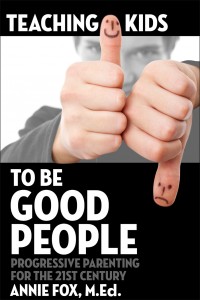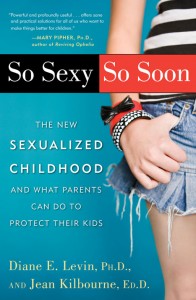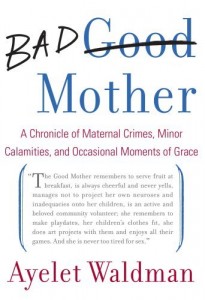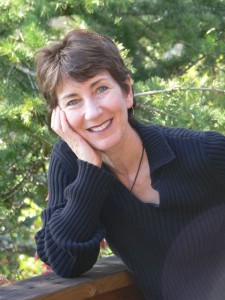|
|
September 19, 2012
Aside from giving birth to my own children, nothing provides me with more delight and a creative high than producing a new book. To find out why I decided, after 25 years of writing exclusively for kids, to write a book for adults, and why every parent and educator at least ought to explore Teaching Kids to Be Good People, please read the introduction.
____________
 The book I've been working on for 15 years
Obviously not all teachers are parents, but all parents are teachers. That’s convenient because good character traits, like empathy and respect, are teachable skills that need to be learned at home as well as at school. When we teach kids to be good people we help the world become a safer, saner, more equitable place for all of us. Nothing is more important than that!
But these are tough times for character educators. I know because I’ve been working in schools with students, teachers, and parents for more than 30 years as well as online since 1997. The job is getting harder. The values promoted by mass media work against us. What passes for entertainment is frequently mean-spirited. Character assassination in public discourse is the air we breathe, and the resulting pollution is a hazard to our well-being. It’s a huge problem, but what can we do?
When our kids plug in, which is most of the time, they encounter few positive adult role models. Online and off, our culture frequently ignores or rewards cruelty. This is why our children desperately need us to do a better job mentoring them in the direction of respect and kindness.
Our kids are good kids, but they are constantly challenged by the less-than-compassionate standards of their peers with whom they are mind-linked 24/7. Today’s teens suffer from status anxiety at levels no other generation has endured. This compels them to do whatever it takes to fit in, including things they are not particularly proud of. Despite these ubiquitous challenges I am confident we can teach our kids to be good people who actively seek opportunities to help others and who have the social courage to act on their good intentions.
We parent-educators are gardeners. We plant seeds and offer nurturing lessons that our kids can internalize. But we are not our children’s only influencers. By rededicating ourselves to teaching our kids to be good people, we provide them with the tools to do the right thing while we’re right there beside them and when they’re on their own. Whether they actually do it, is their choice. But at least we’ll know we’ve done our part well.
To help on our parenting journey, I’ve written this very personal and pragmatic guide that includes essays, podcasts, prompts, tools, questions, answers, and self-assessment quizzes all for the purpose of teaching kids to be good people.
How do you define a “good person?” That’s what I wanted to find out, so I crowdsourced the answer by posting the question. I received hundreds of responses. Eight concepts kept reappearing: Emotional intelligence, ethics, help, forgiveness, compassion, empathy, acceptance, and social courage—all essential, teachable skills. This book will help you teach them to your children or students. Hopefully, we’ll become so engaged in this process that we will inspire all of our children to become part of the solution.

January 17, 2010
 “So Sexy So Soon: The New Sexualized Childhood and How Parents Can Protect Their Kids” by Diane E Levin, Ph.D. Little girls have dreamed of being princesses as long as there have been fairy tales. Thanks to Hans Christian Anderson, I myself had a slightly off-kilter fantasy of growing up to be a mermaid. But if I wanted to dress up as a mermaid for Halloween or to paddle around in my friend’s plastic pool I needed to create my own tail, so to speak. Like all former kids who are now today’s parents, my fantasies came directly from my own imagination… evolving naturally from my interests and taking me into realms I chose to explore through play.
But for 21st century kids, kids who live and breathe packaged princesses, Bratz dolls and Transformers, things are very different when it comes to what they play with, how they play and what they wear.
If you’ve got a daughter who can walk and talk you’ve likely had at least a few conversations and some strong disagreements about her choice of clothes. There’s nothing new about any of this. It’s the job of every generation to attempt to scandalize their parents. We did it to our parents and we didn’t turn out so bad.
But pop culture is way more extreme now and something very destructive is being foisted on our kids via TV shows, movies, print and media ads and on the racks in children’s clothing stores. For one thing, styles for girls of all ages are moving in a very dangerous direction. So much of what’s sold is too short, too tight, too low cut, too peek a boo, too… sexy for little girls. Yet there it all is. And they want these styles. Man, do they want them! Because their friends wear them and because too many little girls, tweens and teens truly believe that their value as people is a direct function of how they look.
It gets harder and harder for parents to carry out our prime objectives: keeping our kids safe and raising them to be compassionate, thoughtful, self-assured young adults. But the issue goes way beyond short shorts, crop tops and G-strings marketed for tweens. Beyond TV shows and toys that program girls and boys to think and act and play and dream in the narrowest, most gender-specific ways.
What’s going on here in 21st Century America is a war of values. On one side, parents doing their best to raise healthy young adults. And what are we up against? The marketing might of multi-billion dollar corporations. You probably don’t need anyone to tell you who’s winning.
In this week’s podcast I talk with Diane E. Levin, co-author of So Sexy So Soon: The New Sexualized Childhood And What Parents Can Do to Protect Their Kids.
Dr. Levin is Professor of Education at Wheelock College in Boston. She has written seven other books including: The War Play Dilemma, Teaching Young Children in Violent Times and Remote Control Childhood? Diane Levin speaks around the world on the impact of violence, media and other societal issues on children, families and schools.
Listen to my interview with Diane Levin right here:
[QUICKTIME http://www.anniefox.com/podcast/FC014.m4a 300 300 false true]
If you have iTunes, you can subscribe to this podcast in the iTunes Store.
Or, you can download an MP3 version here.
Upcoming guests include:
Amalia Starr, author of Raising Brandon: Creating a Path to Independence for your Adult “kid” with Autism & Special Needs
Matthew Amster-Burton, author of Hungry Monkey: A Food-Loving Father’s Quest to Raise an Adventurous Eater
David McQueen, international speaker empowering adults and youth alike on subjects such as leadership, careers and communication skills.
Hannah Friedman, author of Everything Sucks: Losing My Mind and Finding Myself in a High School Quest for Cool
Dara Chadwick, author of You’d Be So Pretty If…
*What’s a podcast? “A podcast is a series of digital media files, usually either digital audio or video, that is made available for download via web syndication.” –Wikipedia… So, in this case, there’s an audio file for you to listen to (in addition to reading the above).

October 5, 2009
 Bad Mother by Ayelet Waldman You’re among friends, so you might as well admit it. When the headlines, cable TV and the blogosphere scream about a bad mother, famous or not, we can’t get enough. And who’s most intent on sucking the marrow out of these kinds of stories? Mothers, of course! We just can’t resist women like Andrea Yates who in the throes of post partum depression, drowned her children in the bathtub. Or Susan Smith who drove hers into a lake allegedly because the man she was dating didn’t like kids. (I’ve wickedly included the links to illustrate how impossible it is not to feed our need to join the Bad Mother Police.)
What’s our fascination with the “bad mother”? Are we’re secretly gloating underneath our horror and disbelief? Do their reprehensible acts make us feel better about the kind of mothers we are?
Maybe the truth is that we’re so uncertain about our ability to measure up to the mythic “Good Mother” that we readily point to the worst mother model around just to give ourselves a little ego boost. “At least I’m not that bad.” And if we really are that insecure about our parenting, how did we get that way? And more to the point, how can we lighten up on ourselves and other women every time a kid has a meltdown in the supermarket?
In this week’s podcast I talk with Ayelet Waldman, author of Bad Mother: A Chronicle of Maternal Crimes, Minor Calamities, And Occasional Moments of Grace.
Back in March 2005 Ayelet wrote an essay for the NY Times in which she stated: “If a good mother is one who loves her child more than anyone else in the world, I am not a good mother. I am in fact a bad mother. I love my husband more than I love my children.”
Today we’re talking with Ayelet about that breakthrough essay, the immediate firestorm it triggered, and where American mothers seem to be today.
Have a listen here:
[QUICKTIME http://www.anniefox.com/podcast/FC009.m4a 300 300 false true]
If you have iTunes, you can subscribe to this podcast in the iTunes Store.
Or, you can download an MP3 version here.
Upcoming guests include:
Rachel Simmons, author of The Curse of the Good Girl: Raising Authentic Girls with Courage and Confidence
Rosalind Wiseman, author of Queen Bees & Wanna Bees and Queen Bee Moms & Kingpin Dads
Diane Peters Mayer, author of Overcoming School Anxiety
Izzy Rose, author of The Package Deal: My (not-so) Glamorous Transition from Single Gal to Instant Mom
Diane E. Levin, co-author (with Jean Kilbourne) of So Sexy So Soon: The New Sexualized Childhood And What Parents Can Do to Protect Their Kids
Susan M. Heim, author of It’s Twins! and Chicken Soup for the Soul Twins and More
Hannah Friedman, author of Everything Sucks: Losing My Mind and Finding Myself in a High School Quest for Cool
Dara Chadwick, author of You’d Be So Pretty If…
*What’s a podcast? “A podcast is a series of digital media files, usually either digital audio or video, that is made available for download via web syndication.” –Wikipedia… So, in this case, there’s an audio file for you to listen to (in addition to reading the above).

September 19, 2008
 We seem to be living in a time when only fools admire honesty and only naives are outraged when leaders cheat their way to the top and continue lying and cheating to maintain their power. I ought to know because I’m outraged all the time by what I read in the news. And the fact that I still believe that people in leadership positions ought to behave better… well, if that doesn’t prove that I’m both foolish and very naïve, nothing will. We seem to be living in a time when only fools admire honesty and only naives are outraged when leaders cheat their way to the top and continue lying and cheating to maintain their power. I ought to know because I’m outraged all the time by what I read in the news. And the fact that I still believe that people in leadership positions ought to behave better… well, if that doesn’t prove that I’m both foolish and very naïve, nothing will.
Dishonestly rules, even when the prize is a few extra points on a math test. We’ve all heard of middle and high school students caught with test answers on their cell phones. Maybe you’ve also heard of parents who push back against school authority rather than use their child’s poor judgment as a teachable moment. Perhaps these same parents are the ones who, in the privacy of their homes, berate their kids – not for cheating, but for being careless enough to get caught!
We’ve got pitifully few examples of honesty in our elected officials. In fact, says Michael X. Delli Carpini, an authority on political ads at the University of Pennsylvania’s Annenberg School for Communication “… in the last two election cycles, the very notion that the facts matter seems to be under assault.” He goes on to say, “Candidates and their consultants seem to have learned that as long as you don’t back down from your charges or claims, they will stick in the minds of voters regardless of their accuracy or at a minimum, what the truth is will remain murky, a matter of opinion rather than fact.”
Is cheating, lying, and maligning your opponent the only way to “win” these days? If you choose not to go that route are you sap and, inevitably, a loser? Will the history books record your participation with a footnote, “An honest but failed attempt.”
Several years ago I worked for a company that produced after school enrichment curriculum. As part of my duties I spent time at conference exhibit halls displaying product and answering questions for the attendees, all of whom were educators… people who work with kids day in and day out. At the end of one long weekend, I packed up and discovered that several of our books had been stolen right from our booth. I remember the phrase spinning in my head, “They stole the books?! But they’re teachers! Teachers don’t steal!”
Surprise! Turns out some teachers do. Just as do many other adults who, in one way or another, seem to succeed very well thank you, by using a different moral compass than the rest of us foolish naives.
What in the world are we teaching our children about the value of speaking the truth and being trustworthy? Your thoughts?
P.S. I hope your daughters and sons have gotten off to a strong start this school year. If any of you are interested in giving the gift of self-confidence to a middle schooler in your life … Check out my new book series, Middle School Confidential™
P.P.S. You can now subscribe to this blog and receive an email notification every time I post a new entry:

| |















